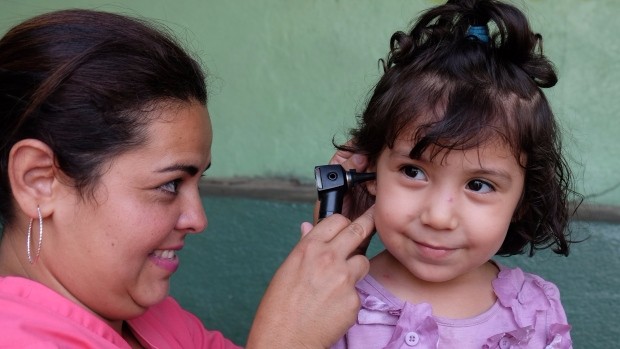Blog
-

A $750K grant from Google will allow a non-profit to help children with hearing loss around the world.
 4 Apr , 2017
4 Apr , 2017
A $750K grant from Google will allow a non-profit to help children with hearing loss around the world. (In a lot of countries it’s considered a curse from God, to have a child with a disability)
A Montreal-based non-profit has been awarded a $750,000 grant from Google to help children with hearing loss around the world.
“World Wide Hearing” (WWH) is one five winners of the Google.org Impact Challenge and the only non-profit from Quebec to make the finals.
“This is extraordinary because it takes our organization to a whole new level and it’s going to connect a lot of children isolated by hearing loss to the world,” Executive Director of World Wide Hearing Audra Renyi told CBC News.
Part of the criteria for winning the grant is using technology to help solve social issues, something that WWH intends to do using teleaudiology.
The cloud-based, open-access platform will start by connecting 150,000 children — but eventually millions — from isolated communities that desperately need access to audiologists, speech therapists and rehabilitation.
The Goal is to equalize care:
The idea is to accelerate this kind of care in developing or middle income countries.
“This platform really equalizes access to hearing care and makes distance disappear,” said Renyi.
The initiatives out of WWH are deeper than the teleaudiology project, and start with the community. In countries where WWH has worked, like the Philippines, Honduras or India, the focus is to train local people as hearing aid technicians.
This not only ensures more long term care beyond screening, providing hearing aids and rehabilitation, but also fighting social stigma.
“In a lot of countries it’s considered a curse from God to have a child with a disability,” said Renyi, who added parents may hide their child at home or keep them out of school.
“I’ve seen cases where sometimes the principal or the teachers are kicking [the child] out of school because they’re just not hearing them. Really it’s a social isolation,” Renyi said.
The problem also hits close to home. In Nunavut, there is only one audiologist yet Inuit children have some of the highest rates of hearing loss in the world. The rate of hearing loss for children in the territory is 30 per cent, compared to three per cent in southern Canada, Renyi said.
A predisposition to ear infections in the population could be part of the problem. Environmental factors — such as overcrowding in homes, poor nutrition or hygiene — can exacerbate the infection and lead to permanent hearing loss.
With only one audiologist in the territory, WWH focuses on training mostly Inuit women in the communities to provide follow up care when the audiologist is not available.
“We’re very excited about the potential to also help a lot of Canadians here,” said Renyi.
Source: CBC News, Montreal-based non-profit “World Wide Hearing”(which strives to help children with hearing disabilities around the world).
Image Credit: Montreal-based non-profit “World Wide Hearing”.





























































































































































































































































































































































































































































































































































































